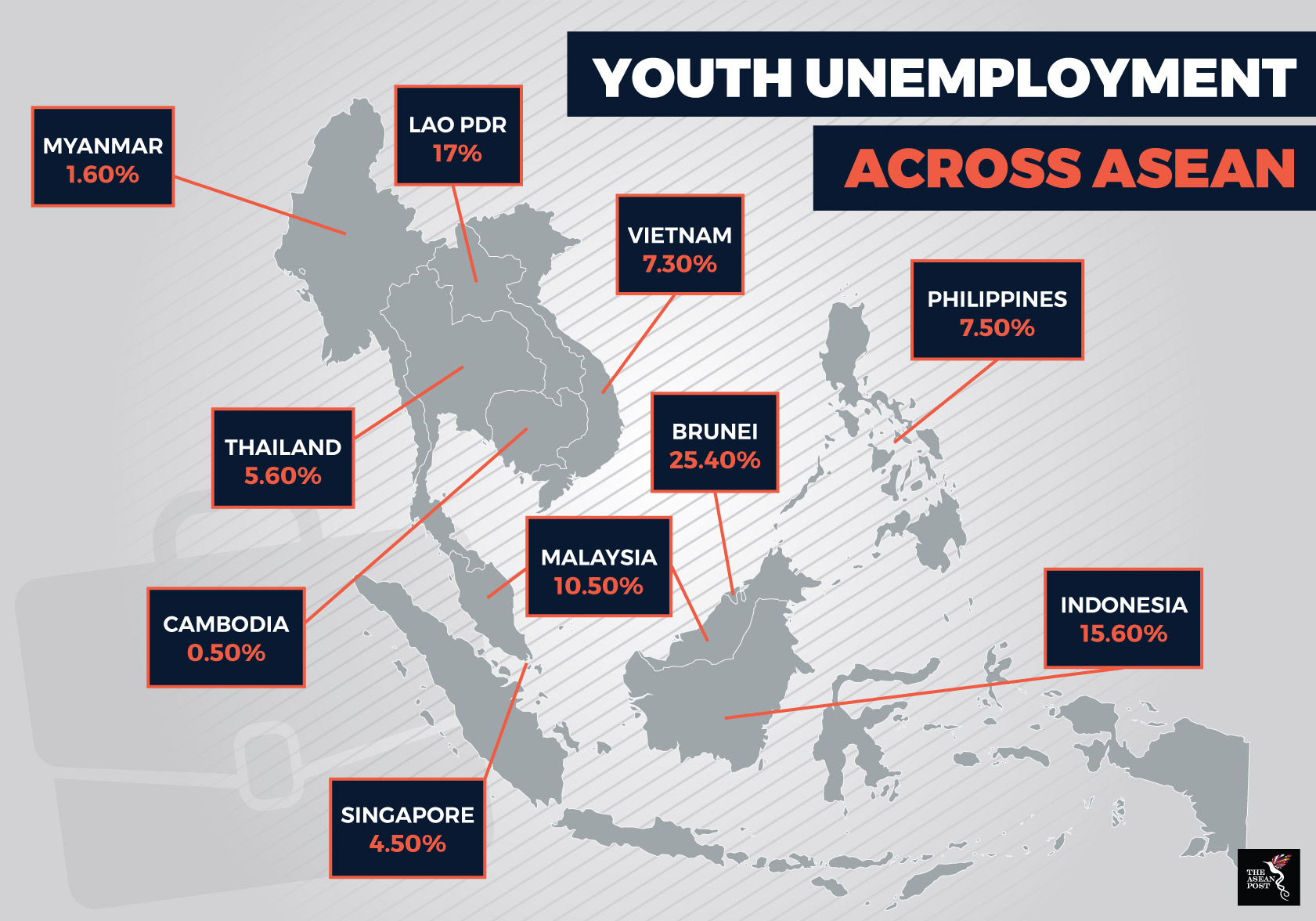Riding the euphoria of the #MalaysiaBaru movement, it is easy to lose sight of the undercurrents driving Malaysia’s youth which led to the National Front’s (Barisan Nasional) now-historic defeat after more than 60 years of political hegemony.
However, amid the wave of optimism and energy gripping the nation following its 14th general election (GE14), it is crucial that the leaders of the new Alliance of Hope (Pakatan Harapan) administration, including its Cabinet and the Council of Eminent Persons, keep their eyes on the ball.
As Pakatan Harapan’s surprise victory in GE14 shows, the country’s millennials have thrown off a reputation for civic disengagement, welding disparate ideologies and backgrounds into an effective voting bloc at the polls.
To keep this double-edged sword from the collective jugular of Barisan Nasional’s successors in government, Prime Minister Mahathir Mohamad must address the underlying socioeconomic disparities which caused this cohort to set aside their smartphones and Starbucks lattes and stand up en masse for political change.
Deep-rooted discontent
According to the Election Commission of Malaysia, youths aged 21 to 39 made up 41 percent of the 14,449,200 registered voters who cast their ballots during GE14. This corresponds almost exactly to prevailing definitions of the millennial cohort, designated as those born between 1981 and 1996 (aged 22 to 37 this year), according to the Pew Research Center, a Washington-based think tank.
Millennials have been subject to a great deal of scrutiny and characterisation – they are notably seen as technologically savvy, mobile and demanding in terms of work scope, with a penchant for transparency and the work-life balance ideal. A 2012 study in the Journal of Personality and Social Psychology also found the cohort to be civically and politically disengaged, placing more emphasis on materialistic values.
In Malaysia, millennials are most aptly represented by the urban Kuala Lumpur youth, comprising 45.9 percent Malay, 43.2 percent Chinese, and 10.3 percent Indian ethnicities, with Eurasians, Kadazans, Ibans and others making up the remainder, according to the Department of Statistics Malaysia’s (DOSM) latest Population and Housing Census.
The median age of these youths is 28, with the under 15 age group being the lowest segment. Regardless of ethnicity, background or age, however, these young Malaysians are united by their inability to find gainful employment, along with a pervasive disenchantment with the alleged excesses and irrelevance of a system which has failed them.
Youth unemployment in the country reached a record of 10.8 percent in 2017, more than three times the overall unemployment rate of 3.4 percent, according to MIDF Research, the research arm of Malaysia Industrial Development Finance Bhd, working from DOSM data. It’s worth noting that this is not a regional high; Brunei, Lao PDR and Indonesia surpass Malaysia in this respect with rates of 25.4 percent, 17.0 percent and 15.6 percent, respectively.
“Since 2000, the unemployment rate for youths aged 20-29 has steadily increased regardless of gross domestic product (GDP) growth. Out of 450,300 unemployed persons who are actively looking for jobs in Malaysia, 365,200 are youths under 30, which implies that 81 percent of those unemployed are youths,” said Ooi Teik Khim, an economist affiliated with the research institute Political Studies for Change.
Question of perception
In his March 2018 report The Findings of Graduate Tracer Study 2007-2015: Broken Malaysia Dream, Ooi notes that prevailing notions that millennials are facing employment issues due to unrealistic salary expectations, poor attitudes and an unwillingness to improve are misinformed.
“In 2014 and 2015, more than 80 percent of unemployed degree graduates expected salaries less than RM3,000, while more than 70 percent of unemployed diploma graduates expected salaries less than RM2,000. The perception of graduates asking for unrealistically high salaries might occur due to employed graduates who are still looking for better jobs,” he explained, citing data from the Ministry of Education’s (MOE) 2007-2015 graduate tracer study.
 Source: International Labour Organisation
Source: International Labour Organisation
Roughly 95 percent of unemployed graduates commence jobhunting within six months of finishing their courses, though this incidence was closer to 70 percent among diploma graduates intending to pursue further studies, according to the study. Out of the unemployed graduates overall, only a fraction remained unemployed after rejecting jobs they considered unsuitable, implying that the majority were not overly “picky” about job selection.
Finally, the MOE study also found that graduates were keenly aware of their English language deficiencies and communication skill gaps, with courses in these fields cited as the most sought-after training programmes for study by participants. However, job applicants continued to perform poorly in these areas, according to 81 percent of companies interviewed in a 2014 Talent Corp study, pointing to a systemic failure elsewhere.
So, if Malaysian millennials aren’t overly demanding in terms of salary, are cognisant of their shortcomings, and are eager to improve, why are they unable to find jobs? Ooi attributes rising youth unemployment in Kuala Lumpur and beyond to three “Ps”: poor families (low-income households), poor states (low-income states) and poor social standing (lack of access to social capital).
While there have been numerous success stories of entrepreneurs who made their fortunes despite coming from poor families, with Jack Ma as a celebrated example, data from the MOE graduate tracer study shows that these cases are few and far between, with graduates from low-income households far more likely to remain unemployed.
Socioeconomic currents
In addition, graduates from public universities in poorer states, such as Kelantan, Terengganu and Sabah, have a harder time landing their first job, compared to graduates from institutes in richer states, such as Selangor and Kuala Lumpur. Individuals from low-income households and poor economic backgrounds have limited access to social capital, accounting for the third “P”.
Social capital, in the form of a network of family, friends and working acquaintances, is a decisive factor for graduates seeking employment, according to the MOE tracer study, with employed degree holders far more likely (25.1 percent) to utilise it in their job search methodology than their unemployed counterparts (6.6 percent). In other words, graduates with friends and family in the right places are finding jobs, while those from less affluent backgrounds are not so lucky.
These findings indicate that the upswell of youth sentiment which turned Malaysia’s political landscape on its head in GE14 cannot be dismissed solely as a knee-jerk reaction to incidents such as the alleged misappropriation of public funds under 1Malaysia Development Bhd. Instead, its roots can be traced to underlying socioeconomic disparities and deeper discontent arising from them.
Addressing these disparities in the midst of a major transition in government, mounting investor uncertainty and the legacy of a national debt well in excess of US$251 billion will be no mean feat for the fledgling Mahathir administration.
However, Malaysia’s new leaders should keep in mind that the roots of the “millennial miracle” which helped them storm Putrajaya lie in issues, and not in party-based rhetoric. This is evident from movements such as #UndiRosak, which encouraged voters to invalidate their ballots as a gesture of dissatisfaction towards both Barisan Nasional and Pakatan Harapan, and which saw significant traction among younger demographics.
“The traction the movement got this time around was not just among younger demographics, but among the party stalwarts in Barisan Nasional as well. It was enough to affect 16 out of 222 Parliament seats in Malaysia, with less than two percent of the vote,” says Hafidz Baharom, campaign front runner for #UndiRosak.
While Pakatan Harapan’s manifesto includes a pledge to create one million jobs paying a minimum of US$636 monthly within five years, it has taken a difficult route towards achieving this end, with the impending cut of some 17,000 political posts from the nation’s civil service. With no concrete details as yet on planned mechanisms to drive new employment opportunities, it remains to be seen whether the new administration can deliver on its promises – and save itself from another millennial miracle in the next general election.
